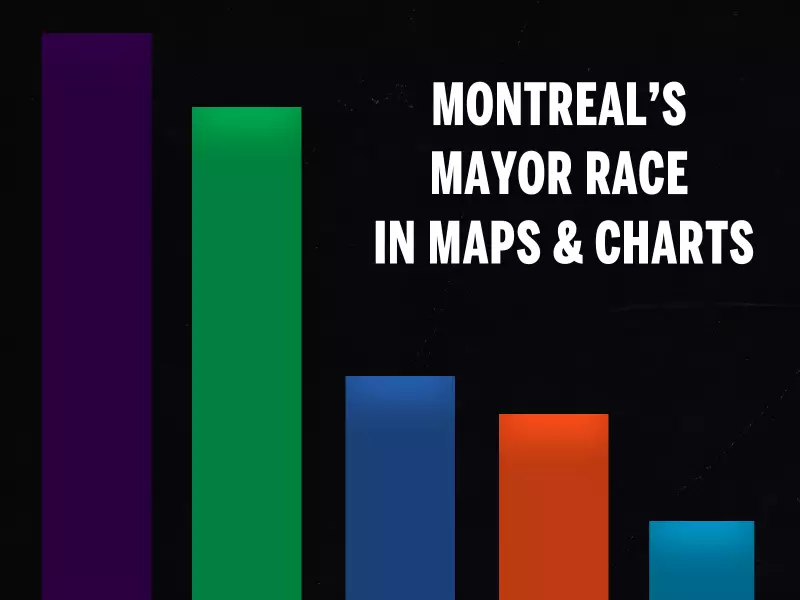
Montreal's 2021 municipal election wasn't just about who won—it was about where they won. New interactive visualizations reveal the stark geographic divides that defined Valerie Plante's historic re-election victory over Denis Coderre.
The Tale of Two Montreals
The electoral maps tell a compelling story of a city split along predictable yet dramatic lines. Projet Montréal's stronghold remained the central boroughs and Plateau-Mont-Royal, painting these areas in their signature pink. Meanwhile, Ensemble Montréal found its support concentrated in the eastern and western peripheries of the island.
Key Battlegrounds That Decided the Election
Several boroughs emerged as critical turning points in the election:
- Villeray–Saint-Michel–Parc-Extension: This borough flipped from Ensemble Montréal to Projet Montréal, delivering a significant blow to Coderre's comeback attempt
- Sud-Ouest: Another crucial swing borough that maintained its support for Plante's party
- Côte-des-Neiges–Notre-Dame-de-Grâce: Remained firmly in the Projet Montréal column despite fierce competition
What the Maps Reveal About Montreal's Political Landscape
The visualization tools allow residents to zoom in on their specific neighbourhoods and see exactly how voting patterns played out at the most local level. This granular view demonstrates that while the island appears divided between east and west, the reality includes numerous pockets of support for both major parties throughout the city.
The data confirms that Projet Montréal's coalition of younger, progressive voters in dense urban centres proved sufficient to overcome Ensemble Montréal's strength in suburban-style neighbourhoods. This urban-suburban divide has become a defining feature of Montreal politics in recent elections.
A Historic Victory in Context
Valerie Plante's win marked the first time a Montreal mayor has been re-elected since Denis Coderre accomplished the feat in 2013. The victory also reinforced Projet Montréal's transformation from upstart party to the city's dominant political force, controlling both the mayor's office and a majority of city council seats.
The detailed electoral maps serve as more than just post-election analysis—they provide crucial insights into the evolving political identity of Canada's second-largest city and hint at the challenges and opportunities facing Montreal's next administration.





